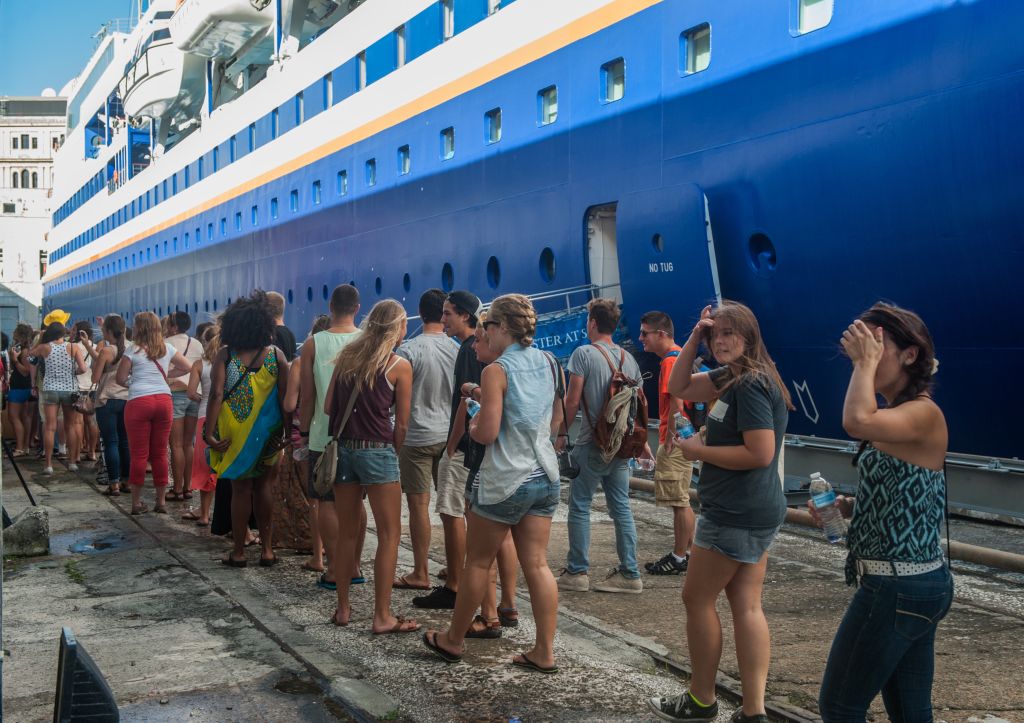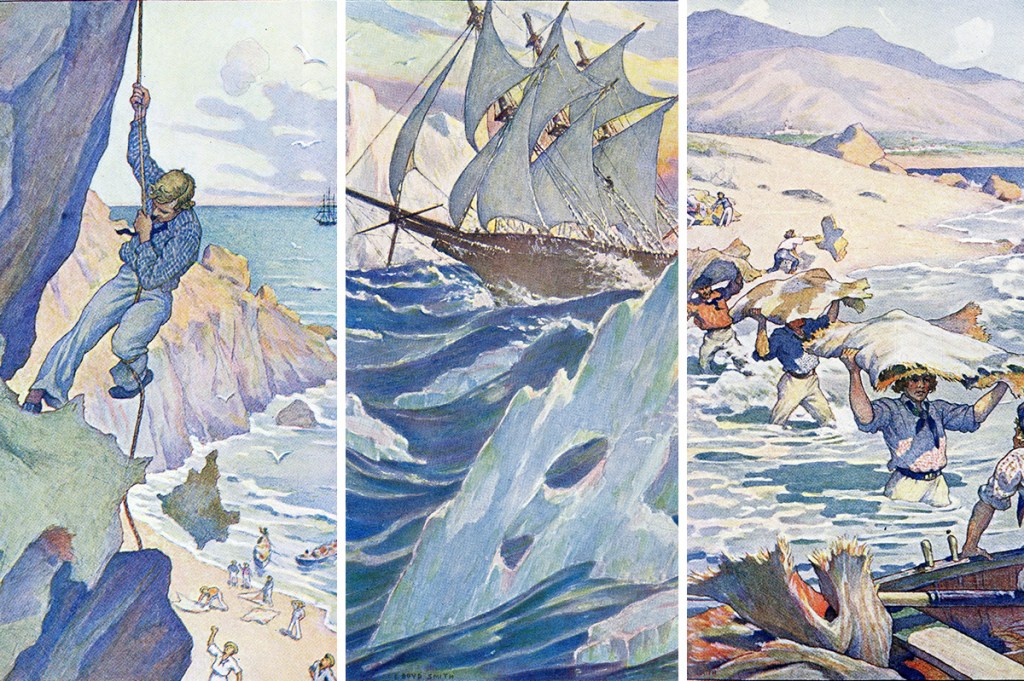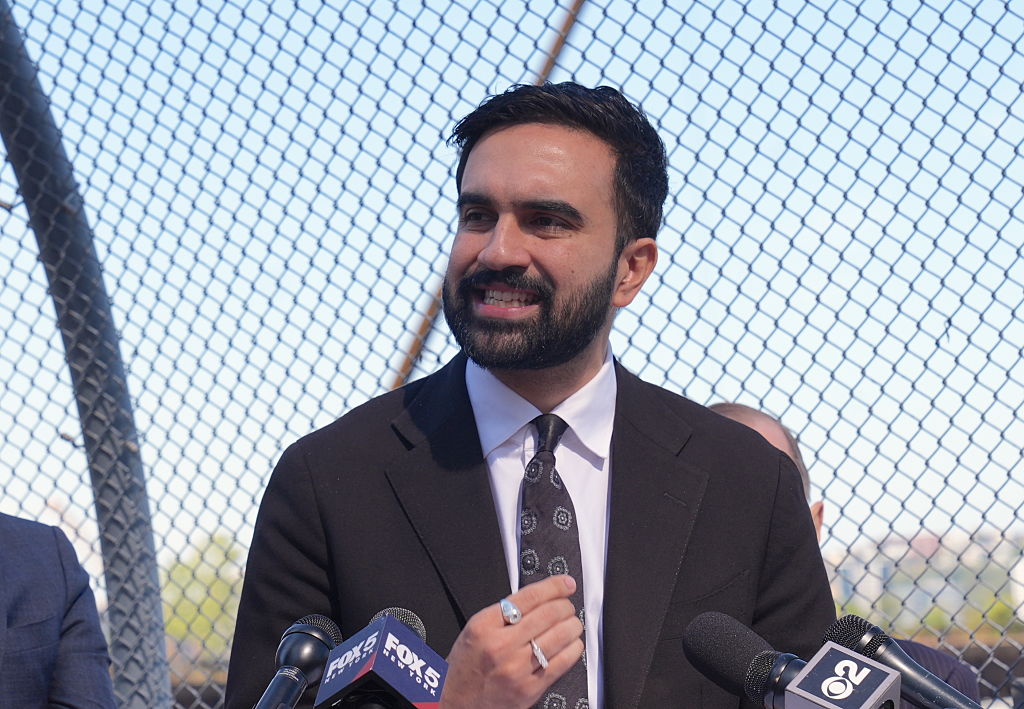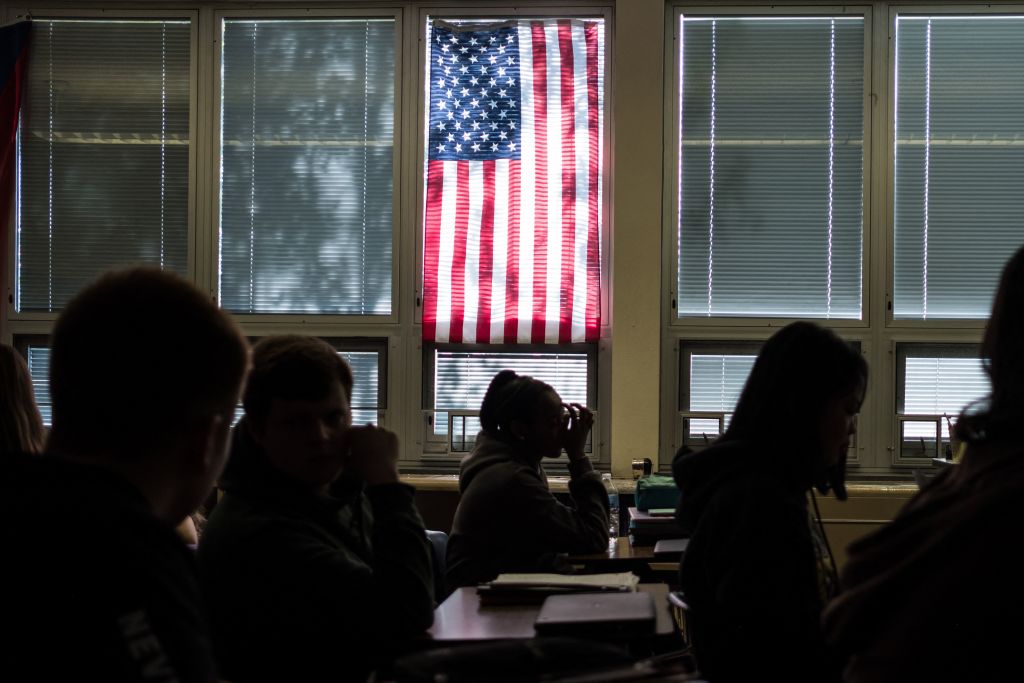I have been pondering ways to rescue young Americans from the trouble and often the waste of the four-year undergraduate college education. Many young people as I recently pointed out are looking for alternatives. But there aren’t very many good ones. In what follows, I propose we put some of these discontented souls in a ship and sail them around the world. It is not entirely a new idea, and before I turn my rudder in that direction, I’d like to survey the horizon.
Once, long ago, I was asked by the senior administration of my university to look after the playboy son of a wealthy European family who had decided to enroll in an undergraduate degree program. He was handsome, smooth, reckless and not very bright. Fortunately he contented himself with parties and unpaid parking tickets, and it wasn’t too hard to keep him out of serious trouble. But after two years of this, he decided to spend a semester at sea: a luxury few students could afford and none who were serious about their education would be tempted by. But off he went.
The next I heard he was in a jail in a southeast Asian country not known for luxury accommodations. My immediately fear was that he had been nabbed for purchasing drugs, a charge for which it would have been hard to rescue him. But it wasn’t that. He had been arrested for a passport violation on the suspicion that he was trying to smuggle someone out of the country. Kidnapping in those parts is a lot less serious than transporting dope, especially if it involves young women. In any case, his family pulled the right strings and he was soon back at the university. And he had a charming story about trying to help out one of his shipmates who had fallen desperately in love.
Semester at Sea is the brand name of a program that advertises itself as bringing “together college students with learners at all stages of life to study with world-renowned professors in a shipboard classroom setting and in countries around the globe.” It tells prospective mariners, “You’ll find adventure, community and life-changing experiences everywhere you go.” Check. That’s what happened with my protégé.
Semester at Sea has competitors such as Sea Mester and University at Sea, but Semester at Sea appears to be the kraken of the category, with a large fleet and a professor in every port. These and other such voyagers may enrich the lives of students in various ways. My only contact with them was the student who was sent home. Yet the sea has been, at least historically, a fine place to get an education. It is not without its hazards, as Aeneas discovered. And as Odysseus before him found out, the diversions along the way can mean a long deferred homecoming. American literature provides the transcripts of many educational voyages, most notably the ailing Richard Henry Dana, whose therapeutic rounding of Cape Horn in 1834 and 1836 on his way to and from Spanish California opened America’s eyes to the challenges that faced the common sailor. Dana inspired Hermann Melville, who filled the watery main not just with whales, but tattooed cannibals and young men rebelling against the tyranny of both captains and gods. The sea, of course, isn’t our only educational waterway. Twain’s Life on the Mississippi and especially Huckleberry Finn give us the moral depths of even relatively shallow waters. After all, the snags and shoals are usually more dangerous than the tempests.

Today, a young man might spend many semesters at sea by joining the Merchant Marines — which involves a rigorous course of landward study before undertaking a career in “national security, marine transportation and economic needs of the United States.” The son of a friend of mine undertook this, but after several years in service quit, unable to bear the tedium. That, more than the fear of shipwreck and pirates, has been the fate of sailors since our Paleolithic ancestors launched their first log raft.
What life aboard raft, ocean liner or cargo ship teaches is that you have a lot of time on your hands. That’s time that can be spent carving scrimshaw (as one of my ancestors did), or time better spent getting immersed in the sea of ideas. I wonder if the “semester at sea” idea could be transformed into an entire undergraduate education delivered as a cruise around the world, perhaps over the course of eighteen months or two years?
The faculty would be changed out or supplemented at various ports of call. Students would see much of the world first-hand while constrained to study on board as well as assigned labor. The usual frills and many of the distractions of traditional college life would be absent, so a great deal could be accomplished in a relatively short time. Entry to the program would be constrained to students who meet stringent psychological as well as intellectual standards. This wouldn’t be a pleasure cruise with libertine shore leaves, but something closer to Dana’s or Melville’s experiences as an all-in experience, minus the Cape Horn winter or the Marquesan Island cannibals. Instead, the students would be immersed in learning how to read important books, how to write with clarity and precision, how to observe the heavens and the seas, how to encounter other cultures and how to work together to maintain their ship.
Just as important as what they study and do would be what they would be kept away from: the faddish ideologies of the contemporary American university, the fake community of social media and the temptation to fritter away their time in the trivialities of our time.
The point would be to return to homeport with a cohort of students transformed for the better by the experience. Ideally they would dramatically outperform the graduates of high-quality traditional residential colleges.
What could go wrong? Many things, of course. Homesickness, frustration and mental illness are possibilities. The wrong captain and mates could make the experiment hellish. Shipboard animosities could make life unbearable: they are part of every voyage. Ocean disasters are rare but possible. Tragedies at home could force some students to abandon the project along the way. And no matter how good the curriculum and how able the instructors, students will ultimately grumble about what they must study as well as what they missed. Every form of education has its drawbacks.
But I have licensed myself to imagine this as an experiment. All I need is a billionaire who would like to give it a try, and a set of expert psychologists to sort out which applicants could thrive under these circumstances.
This isn’t a plan to transform American higher education, but an attempt to discover what is possible. Contemporary American colleges and universities emphasize giving students what they want. Why not turn this around for a small number of students by offering then the chance to rise to the highest levels of practical competence, intellectual excellence and good character?

























